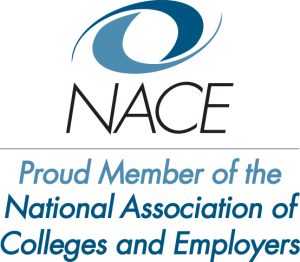How Career Adaptability is Essential to the Future of Work
The Why Behind PathwayU
PathwayU was built to help students find their purpose in life. Our platform is based in science and academia. Our mission is to help students and universities create pathways for all.
Our co-founders, Bryan Dik and Kurt Kraiger are the brains behind the technology and created this series to help explain the why behind PathwayU. Click here to download our e-book and set up a custom tour here.
The World of Work is Changing
At the start of this year, still in the heart of the Covid-19 pandemic, a Pew Survey found that two-thirds of unemployed adults were seriously considering changing occupations. These prospective career-changers were found not only among the privileged high-earners but among middle-income and lower-income respondents as well. A third had already started to retool, enrolling in a job retraining program or pursuing a degree.
In many ways, the pandemic sped up the progression of work-related trends that already were underway, such as the rise of AI, ubiquitous computing, remote work, and the gig economy. The predicted “great resignation” unfolding now is evidence that the pandemic has hastened trends toward change on a personal level as well. Many people who were thinking about changing careers prior to the pandemic have decided it is finally time to reset.
For emerging adults experiencing these kinds of changes all around them, the angst and anxiety are palpable. One thing is sure—career change, already common before Covid, is a central theme in the world of work today. How can career services work to ensure students are prepared to navigate a reality in which change is the rule, not the exception?
Vocational psychologists point to two approaches people can take to successfully navigate the changing world of work: career adaptability and planned happenstance. This essay, the first in a two-part series, examines the first of these.
Help Your Students Build Career Adaptability
A key path toward thriving in the changing world of work is to develop career adaptability, which refers to people’s readiness and resources for coping with “tasks, transitions, and traumas¹” in their careers. Some transitions people face are ones they expect, like finding employment after finishing a degree. Others, like getting laid off, may feel like they come out of nowhere.
Nearly all transitions, whether good or bad, are stressful, and require adaptability to manage successfully. Across 90 studies, research reveals that people’s career adaptability is linked to numerous beneficial outcomes, including a strong career identity, a sense of calling, reduced job stress, enhanced employability and promotability, and increased engagement, job performance, job, and life satisfaction, and positive emotions². Adapting within one’s career journey, in other words, bears fruit³.
Four types of psychological resources assist in building career adaptability: concern, control, curiosity, and confidence. The most important aspect of career adaptability is a concern, or the motivation to prepare for future possibilities.
Components of Career Adaptability: Concern
Career concern flows out of a future orientation—a sense that to be successful in the future, it helps to prepare now. Concern includes an optimistic attitude of foresight, one that drives a person to learn more about what they’ll likely face both in the near-term and the distant future.
Career concern is fostered by looking back and realizing that where a person is now is a product of past experiences— experiences that person can build on to prepare for a future where they can express their gifts in new ways.
In a world of work defined by constant change, anticipating that change and developing an attitude of preparedness will position students well to manage it when it arrives.
Components of Career Adaptability: Control
The second component of adaptability is control over one’s future career. Control in this sense means self-discipline—that is, taking an organized, deliberate, decisive approach to making choices and managing transitions. Having control means recognizing that a person is not merely a passive recipient of external forces in the world of work, but rather, all of us are active shapers of our career trajectories.
The opposite of this type of control is confusion, impulsivity, or avoidance. One of the paradoxical advantages of the new “trading security for flexibility” labor contract is that a person can no longer rely on a stable employer to map out a career path. Instead, we are in the driver’s seat of our own career development.
Career services professionals are doing right by their students by helping them understand they have the latitude to proactively make their own decisions, rather than wait for external structures in the world of work to determine the direction of their path.
Components of Career Adaptability: Curiosity
The third dimension of career adaptability, curiosity, emerges from a sense of control. Curiosity involves taking the initiative to figure out new ways to translate one’s skills into opportunities. It requires inquisitiveness—an eagerness to explore—and transforms a person from naïve to knowledgeable.
Curiosity builds on a willingness to mentally project oneself into new roles, imagining what they would be like and identifying what is needed for success. Doing this, over time, fosters new skills, greater self-awareness, and a clearer understanding of new ways to work.
The broader the array of information that results from one’s curiosity, the more informed a person’s choices can be. Career professionals can help students avoid participating in narrow job training programs that focus solely on skills that will prove obsolete in a decade while overlooking a broader approach to ongoing skill development.
Job skills are critical, but even more critical is “learning how to learn,” a skill that can help a person adapt as needs in the world change and as new technologies are introduced. Helping students lean into their curiosity will spur on personal growth, promote their ability to roll with change, and help them thoughtfully harness new technologies and new ways of working as they live out their callings.
Components of Career Ability: Confidence
Finally, career adaptability requires confidence. People have confidence when they look ahead and see themselves encountering but overcoming barriers in their careers. Confidence means feeling assured they will do what it takes to live out their callings in the world of work, despite knowing it won’t always be easy. Some of the barriers students may confront are internal, like self-doubt.
Others are external, like those rooted in inequities based on social class, gender, or race, which limit access to valuable opportunities. These barriers are enormously challenging, but confidence grows when a person believes they are surmountable. A lack of confidence leaves a person unwilling to take risks, preferring to avoid failure by not trying. That strategy offers short-term anxiety relief but thwarts progress toward longer-term goals. Instead, engaging in active problem-solving and leaning on support systems will help students grow the confidence they need.
There are no guarantees in a post-pandemic, changing world of work. In many ways, navigating it successfully is a game of odds. But to maximize students’ chances of not only surviving but thriving in the midst of change, cultivating career adaptability is essential.
Part 2 of this series tackles the notion of planned happenstance.
Portions of this essay were adapted from Bryan Dik’s latest book Redeeming Work (Templeton Press).
Footnotes and Sources
¹Mark L. Savickas and Erik J. Porfeli, “Career Adapt-Abilities Scale: Construction, Reliability, and Measurement,” Journal of Vocational Behavior 80 (2012): 662 (661-673).
²Cort W. Rudolph, Kristi N. Lavigne, and Hannes Zacher, “Career Adaptability: A Meta-Analysis of Relationships with Measures of Adaptivity, Adapting Responses, and Adaptation Results,” Journal of Vocational Behavior 98 (2017): 17-34
³We have to be careful here, given that correlation does not equal causation. Most of the studies in Rudolph et al.’s meta-analysis are correlational, from which causal inferences cannot be made. It is of course possible that beneficial career development status boosts career adaptability, rather than (or in addition to) the reverse. Third variables, such as well-being, maturity, intellectual ability, or social support may also promote both career adaptability and beneficial career development simultaneously. But evidence from experimental designs (e.g., Melanie Ohme and Hannes Zacher, “Job Performance Ratings: The Relative Importance of Mental Ability, Conscientiousness, and Career Adaptability,” Journal of Vocational Behavior 87 [2015]:161-170) and longitudinal designs in which people are followed over time (e.g., Hannes Zacher, “Individual Difference Predictors of Change in Career Adaptability Over Time,” Journal of Vocational Behavior, 84 [2014]: 188-198) lend support for the conclusion that career adaptability leads to positive outcomes, so I feel confident in making the causal inference.
-1.png?width=288&height=67&name=PathwayU_PGLogo%20(1)-1.png)











